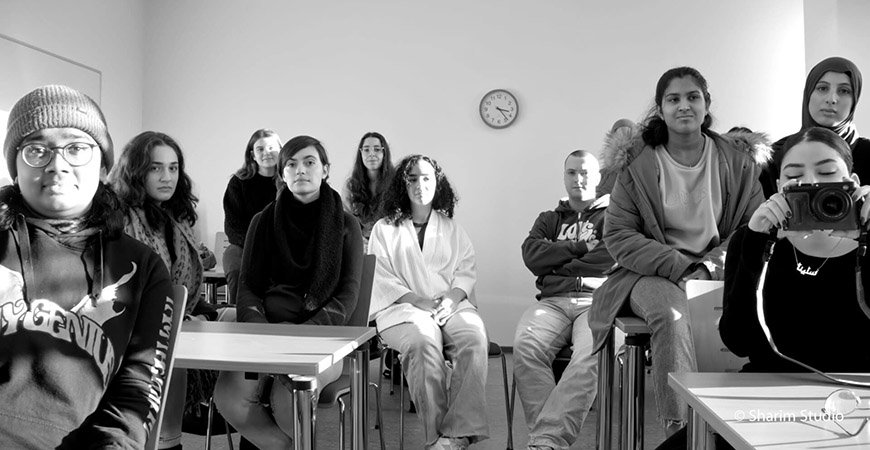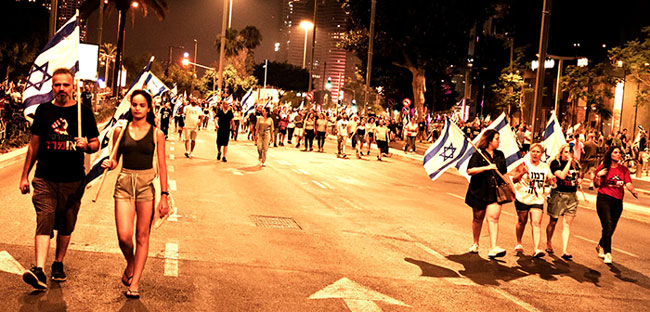
Filmmaker and UC Merced Professor Yehuda Sharim recently completed an autobiographical project that is an intimate contemplation of his childhood home in Israel, where visits with his aging father are juxtaposed with the conflict and violence engulfing the Middle East.
“I don’t recognize the country of my birth, and it does not recognize me,” Sharim said, describing the experiences documented in “Who but When, How.”
“There, I visit my father, who cannot remember my name. They are both changing forever, disappearing, refusing to be embraced.”
Sharim, a professor of media and performance studies, said he hopes the film can help Muslim and Jewish people in Israel and the Palestinian territories find common ground to share their feelings of loss.
“Here cinema does what governments and army generals cannot foresee – creating a meeting space for deep listening, understanding and compassion in a world bleaker with each passing day,” he said.

George Lipsitz, a professor of Black studies at the University of California, Santa Barbara, said Sharim’s film tells a story “about mortality and a family’s efforts to fend it off, and about war that isn’t as glamorous, heroic and enticing as most Hollywood movies make it.
“The result is a film that is both profoundly moving and disturbing, a call for thought and for action.”
A grant from the Henry Luce Foundation provided funding for “Who but When, How.” A longtime UC Merced partner, the Luce Foundation’s support for Sharim’s work compliments the organization’s mission to advance participatory democracy and justice, including efforts “to re-imagine and re-invigorate democratic culture and practices.”
“Yehuda's work is intensely personal and deeply political. He makes films that depict the beauty, the struggle, the love, and the anger of the people with whom he works,” Luce Foundation interim President Sean Buffington said. “The Luce Foundation is proud to have supported Yehuda's distinctive artistic and social vision, which has produced profound insights into democratic cultures."
In addition to “Who but When, How,” the funding from the Luce Foundation supports another Sharim film project in development. Sharim said the new project focuses on the impact of incarceration on individuals and families in Virginia.
Sharim was recently named an Underrepresented Scholars Fellow by the University of California Humanities Research Institute, which features his photographic work, “Reparaciones,” in collaboration with poet and UC Merced Professor Lorena Alvarado.
Sharim’s prior film “Flora”(2023), was honored last spring with the Latino and Native American Film Festival’s Environmental, Social, Economic, Political Justice Award.







